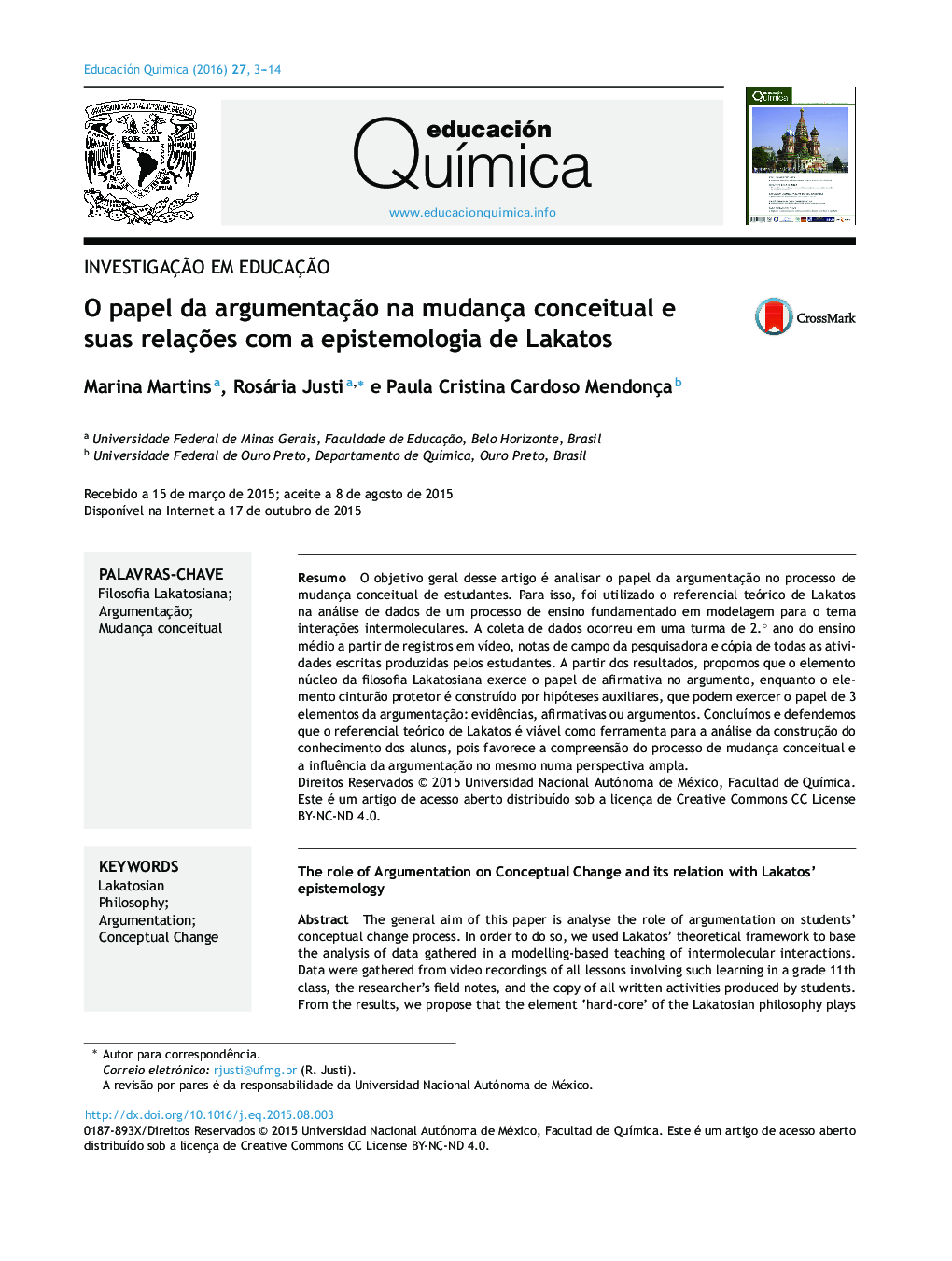| Article ID | Journal | Published Year | Pages | File Type |
|---|---|---|---|---|
| 1184320 | Educación Química | 2016 | 12 Pages |
ResumoO objetivo geral desse artigo é analisar o papel da argumentação no processo de mudança conceitual de estudantes. Para isso, foi utilizado o referencial teórico de Lakatos na análise de dados de um processo de ensino fundamentado em modelagem para o tema interações intermoleculares. A coleta de dados ocorreu em uma turma de 2.° ano do ensino médio a partir de registros em vídeo, notas de campo da pesquisadora e cópia de todas as atividades escritas produzidas pelos estudantes. A partir dos resultados, propomos que o elemento núcleo da filosofia Lakatosiana exerce o papel de afirmativa no argumento, enquanto o elemento cinturão protetor é construído por hipóteses auxiliares, que podem exercer o papel de 3 elementos da argumentação: evidências, afirmativas ou argumentos. Concluímos e defendemos que o referencial teórico de Lakatos é viável como ferramenta para a análise da construção do conhecimento dos alunos, pois favorece a compreensão do processo de mudança conceitual e a influência da argumentação no mesmo numa perspectiva ampla.
The general aim of this paper is analyse the role of argumentation on students’ conceptual change process. In order to do so, we used Lakatos’ theoretical framework to base the analysis of data gathered in a modelling‐based teaching of intermolecular interactions. Data were gathered from video recordings of all lessons involving such learning in a grade 11th class, the researcher's field notes, and the copy of all written activities produced by students. From the results, we propose that the element ‘hard‐core’ of the Lakatosian philosophy plays the role of the claim in the arguments, whilst the element ‘protective belt’ is built by auxiliary hypotheses that can play the role of three elements of argumentation: evidence, claim or arguments. We conclude and advocated that the Lakatos’ theoretical framework is a viable tool for basis the analysis of the students’ knowledge construction since it can support the understanding of the conceptual change process, and of the influence of argumentation on this process in a broad perspective.
